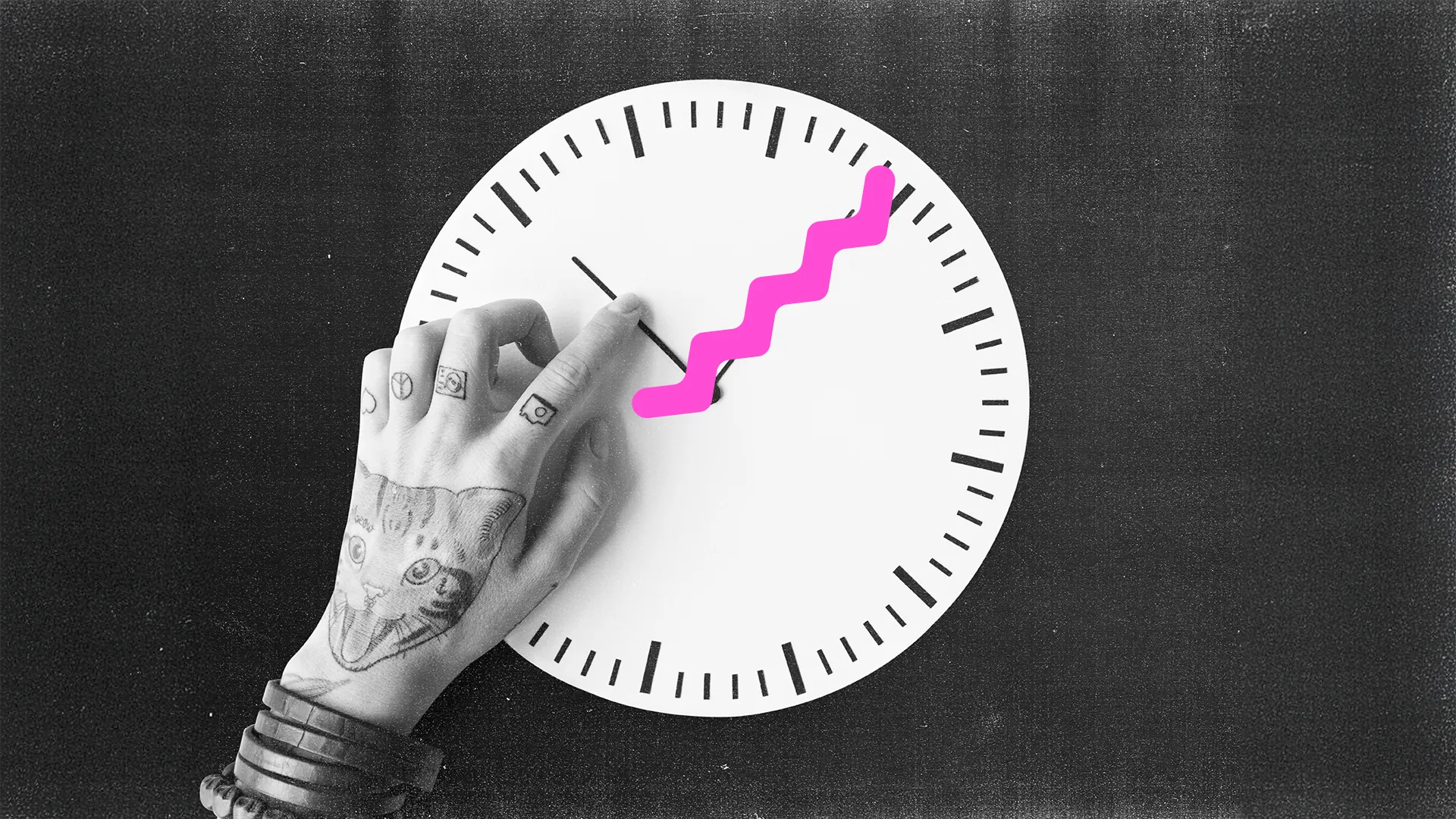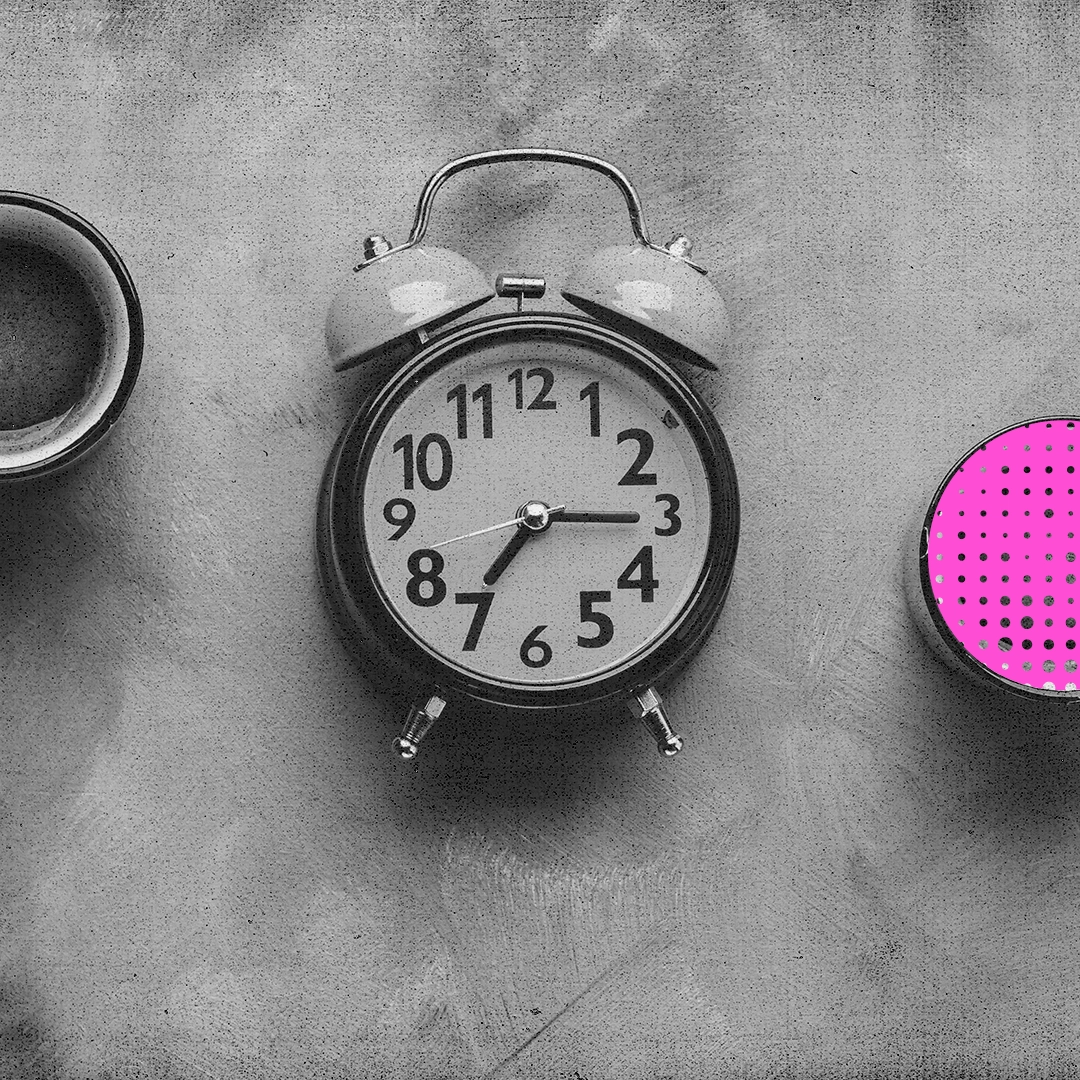This is Part 8 of our series on "The creative industry's relationship with time". If you missed it, read part 7 here.
"The time to relax is when you don't have time for it."
- Sydney J. Harris
In the relentless pursuit of productivity, it’s easy to overlook a crucial truth: some of the most valuable time isn't spent producing anything at all. The tension between productive time (actively creating deliverables) and reflective time (thinking, processing, and gaining insight) represents one of the most misunderstood aspects of creative work.
Equating what can be seen, with what should be paid
This misunderstanding manifests in systems that value visible output while rendering invisible the essential reflective work that makes that output possible. The result? A distorted picture of how creative value is actually generated and a precarious business model which is diminishing in its ability to drive profit by the day.
Traditionally, productive time is easy to recognise, measure, and justify. It produces tangible outputs that can be shown to clients, tracked in systems, and billed on invoices. X number of concepts, Y number of presentations, Z number of rounds of amends are all ways we use to try and align productivity with scope and fees.
The hours spent designing layouts, producing presentations, writing copy, coding websites, or editing videos create artifacts that demonstrate progress. Presentations, meetings, and calls produce visible engagement that the client can literally see before their eyes.
These productive activities fit neatly into traditional time-tracking. They answer the question "What did you do today?" with concrete outputs that justify the hours spent.
As one operations leader noted in It's Nice That
”Time tracking systems can be helpful to support an agency's pricing model, which helps translate the level of effort to the client audience – who often have little knowledge or respect to the time that needs to go into delivering good creative."
This visibility makes productive time easy to value, both internally and externally. It creates the reassuring sense that work is happening and progress is being made.
Can we measure what we can’t see?
By contrast, reflective time often appears unproductive on the surface. It produces no immediate deliverables and can look suspiciously like doing nothing. It might not be spent at a desk, in a meeting, or on a Zoom. Yet we know it’s this invisible work where often the most valuable ideas and insights emerge. How can we capture the value of:
- Incubation: The subconscious processing that happens when you step away from active problem-solving often leads to breakthrough ideas.
- Synthesis: Making connections between seemingly unrelated concepts requires mental space that busy production schedules rarely allow.
- Strategic thinking: Stepping back to consider the bigger picture prevents getting lost in tactical details at the expense of overall effectiveness.
- Evaluation: Honestly assessing what's working and what isn't requires distance that's hard to achieve in the midst of production.
Rick Rubin captures this essential quality in "The Creative Act":
”The most important part of any creative process is listening. Not just with your ears, but with all of your senses. Listening is how we receive information, inspiration, and guidance."
This listening – to ourselves, to others, to the work itself – requires space that productivity-obsessed cultures rarely provide.
The False Dichotomy
The problem isn't that agencies value productive time too much, but that they create a false dichotomy between production and reflection. In reality, these modes are complementary rather than competitive—each enhances the other when properly balanced.
Productive work without reflection becomes mechanical and uninspired. Reflective time without production remains abstract and unrealised. The magic happens in the dynamic interplay between the two
For creative agencies, what matters most is producing work that makes an impact, solves problems, creates solutions that haven’t been seen before, wins awards—and that requires both productive execution and reflective insight.
Addressing this imbalance requires both practical changes to how time is structured and conceptual shifts in how it’s valued.
Here are some ideas on a way forward…
- Legitimise reflective time: Explicitly recognise thinking, exploring, and incubating as essential parts of the creative process, not luxuries to be squeezed in around "real work." Schedule them in, charge clients for them (just make sure you show how they contributed to the result).
- Create dedicated space: Schedule specific periods for reflection rather than hoping it will happen in the margins of busy production schedules. This might mean literally scheduling days / half-days for ideas, experimentation, discussion, and getting comfortable with the fact that this time is valuable and chargeable.
- Value quality over quantity: Shift metrics from hours logged or tasks completed to also consider the impact and effectiveness of the work produced. Logging hours helps to see where the effort is going. Then you can see what types of effort align with the biggest impacts and best results.
What might this rebalanced approach look like in practice?
Some agencies are implementing "thinking Thursdays" or similar concepts—dedicated time for research, exploration, and strategic thinking without the pressure to produce immediate deliverables. Days out, trips to the art gallery, can all sound like unnecessary creative perks to the uninitiated, but to the creative thinkers, they’re the activities of improving inspiration, brain power and creative output. These happen to be all the things that you’ve been ‘selling’ to your clients all along.
Rather than forcing all activities into traditional billable/non-billable buckets, create categories that recognise the value of research, exploration, and strategic thinking. These categories can still and should be billable. Think about how to show the value of them to the client throughout the project.
The Business Case for Reflection
An oft used phrase for the ironic conundrum that creative agency leaders face is that they spend too much time working in their business, than on it. The thinking that they give (hopefully sell) to their clients is rarely directed to the future of their own success and prosperity.
The insights gained through reflection often prevent costly mistakes, generate more effective solutions, and create the differentiated thinking that clients are willing to pay a premium for and that can help grow a business, not just keep maintaining it while running around and putting out fires.
There are so many benefits to reflection. Spending time thinking through potential challenges before execution can prevent expensive rework later. Stepping back to evaluate processes often reveals ways to work smarter rather than just harder.
In the book, Brave New Work, Aaron Dignan shares the concept of organisational debt – the number of processes, reports, documentation that exist in your business just because they’ve always been there, but no longer add any value.
And of course, for people. Cultures that value reflection tend to create more sustainable working environments that creatives crave and appreciate, helping to retain top talent.
The Path Forward: Integrated Time
It may be highly likely that these articles over-simplify some of the polar-opposites of evaluating the challenge of time in agencies. How do we move toward a more integrated view of time—one that recognises the essential interplay between the duality of all of the themes that we’ve expired?
It can mean the need to acknowledge that creative work isn't linear but cyclical, (in fact more likely up, down, backwards, forwards, sideways) moving through phases of exploration, execution, evaluation, and refinement, each phase requiring different types of time and different ways of working.
Oliver Burkeman's perspective offers a nice way of framing the imperfect balance:
”The day will never arrive when you finally have everything under control... The truly valuable skill... isn't knowing how to do everything you think you're supposed to do; it's knowing which things you can stop doing, with minimal consequences, to focus on what matters most."
For creative agencies, what matters most is producing work that makes a difference—and that requires both the visible productivity of execution and the invisible yet essential power of reflection.
The challenge isn't to choose between being productive or reflective, but to create cultures and systems that reward both—recognising that the most valuable creative time often emerges in the dynamic dance between doing and thinking, between action and insight.
You can start by intentionally planning more reflectivity. Sharing that time as a collaborative, exploratory experience. BUT. Just please follow it up with action and something productive that everyone can see, so they know it was worth it in the first place.
















